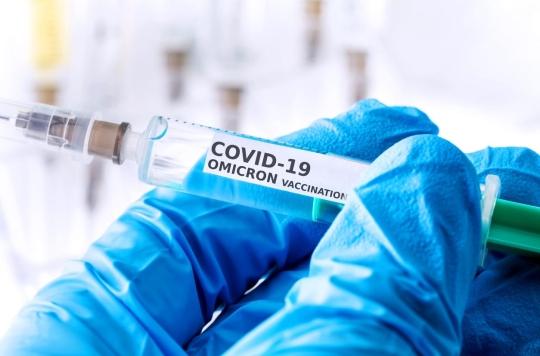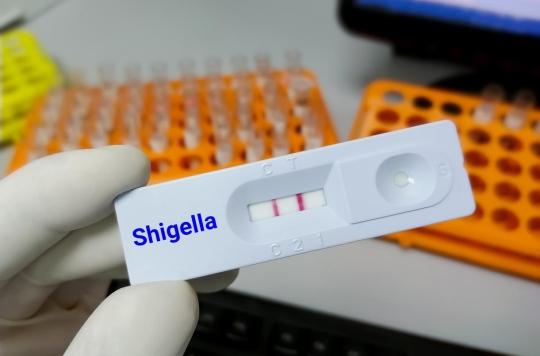Faced with the crisis in the British public health system, Theresa May asks general practitioners to open seven days seven and from 8 to 8 p.m., on pain of losing their aids.

In a study published recently in the scientific journal BMJ, author David Oliver described the crisis in the British public health system (NHS). And the situation has not improved since this inventory published at the end of 2016. Asked by Agence France Presse (AFP), the French Red Cross describes for its part an unprecedented “humanitarian crisis”. British doctors deplore conditions worthy of the “third world”.
A photo published on the front page of the Daily Mirror has made the rounds of social networks. It shows little Jack, 22 months old, wearing only a diaper. For lack of bed, he sleeps on a blanket placed on two red plastic chairs. Although he was suspected of having meningitis, Jack waited five hours in the emergency room before seeing a doctor.
A sacred institution
And this scene is not uncommon. Like previous winters, the National Health Service (NHS) is “on the verge of breaking down”, according to doctors and hospital organizations. A free healthcare system, the fifth largest employer in the world (1.5 million employees) is nevertheless a sacred institution in the United Kingdom. “Our national religion,” said ex-minister Nigel Lawson. The NHS therefore represents a crucial political stake which decides the elections. Supporters of Brexit had made it one of their main campaign themes, promising, with touting and truncated figures to back it up, to bail out the NHS coffers with the money that would no longer have to be sent to Brussels .
But the crisis is deeper. The NHS is a model in the face of an aging population, population growth and austerity policies. The slightest alert, like the flu epidemic this year, will thus suffice to halt the system. Since the fall, emergency room wait times have exploded: 23% of patients waited more than four hours before seeing a doctor last week. Two patients died on a stretcher in a hallway at Worcestershire Royal Hospital this week. Everywhere there is a lack of beds, ambulances and doctors.
GPs to the rescue
Dr Richard Kerr, a fellow of the Royal College of Surgeons, even claims to have never seen such deterioration in his 26-year career. Conservative Prime Minister Theresa May called the comments “irresponsible and exaggerated”. In order to unclog hospital emergencies, she called on general practitioner practices on Sunday to open seven days a week and from 8 a.m. to 8 p.m., otherwise they could lose government aid.
But even this measure is struggling to convince. “It’s not a winter crisis, it’s a blizzard in the eternal NHS winter. We ask the staff to offer a first quality service with staff and a number of beds worthy of the third world ”, accuses Dr Mark Holland, specialist in acute medicine. In a very moving speech to Parliament, MP Toby Perkins expressed his “shame” at having seen his father “better looked after while on vacation in Germany than at home”. He died in his arms in July of a ruptured aneurysm after being discharged from hospital for lack of space.
The NHS in numbers
Conceding that “enormous pressure weighs on the NHS”, Theresa May ensures that “never” has the government invested so much in the system by injecting 10 billion additional pounds over six years until 2020.
“Wrong,” replied NHS England director Simon Stevens. In remarks relayed by Agence France Presse (AFP), he affirmed that “the financing of the NHS in real terms (without taking into account inflation) will decrease in 2018-2019”. “The Prime Minister is in denial,” Labor opposition leader Jeremy Corbyn concluded. In a heated face-to-face in Parliament on Wednesday, he asked Theresa May if she found what happened to Jack, the baby forced to sleep in an emergency room chair, acceptable.
The Prime Minister spoke of an “isolated incident”. “Is she kidding?” I have seen a large number of isolated incidents in just one day at a single hospital. She must wake up, ”Rose, the baby’s mother, fumed in the Daily Mirror.
.

















-1590362612.jpg)